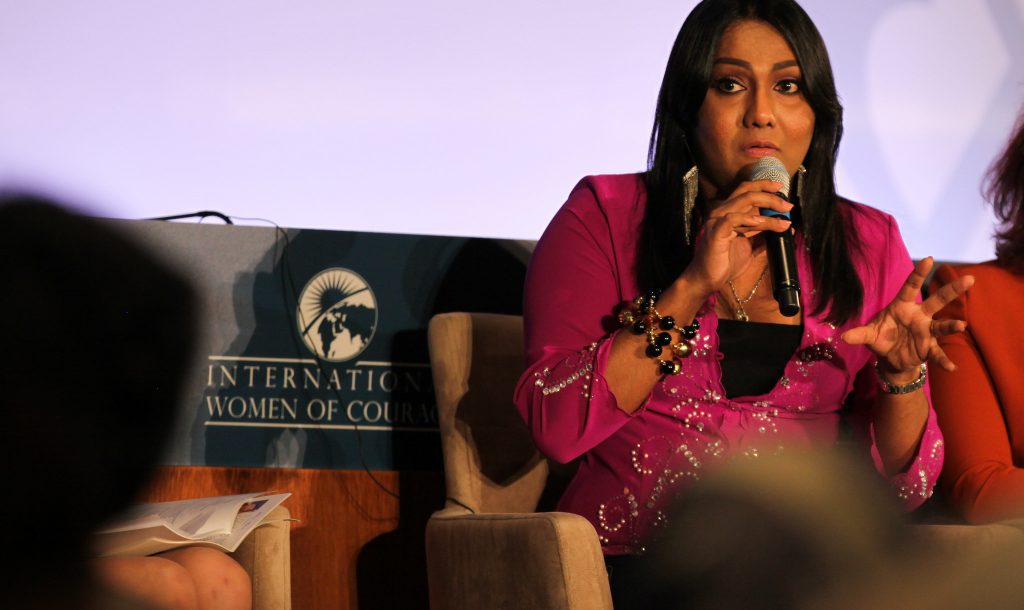Ismail Shogo outlines the Malaysian state’s stance on sex re-assignment surgery, and seeks to analyse the rationale that underlie it.
In 1983, the National Fatwa Council of Malaysia issued a fatwa (religious ruling) prohibiting sex-reassignment surgery (SRS) among the Muslim population in Malaysia. Today, Muslim transsexuals can face charges entailing a year of imprisonment, a fine not exceeding RM 1000, or both.
Aversion to transsexuals (and by extension, transgender individuals, given that cross-dressing remains similarly forbidden) by Malaysian authorities also remains prevalent – with a JAKIM official calling the phenomenon a result of American influence, and one that is “new to Malaysia – not more than 20 years”. The official also remarked of the propensity of transsexual individuals to “stop being transsexual”.
Not surprisingly, Malaysia has continued to justify its stance on SRS within grounds of religion, specifically Islam – as clearly exemplified in April 2016 when Deputy Minister Asyraf Dasuki categorically declared that “being transgender… (rejects) Allah’s stipulations”. This dynamic has subsequently lent to perceptions that frame aversion to sex-reassignment, and by extension issues pertinent to the transgender community, as one that runs parallel to puritanical interpretations of Islam. Evidently, however, a more concise analysis of Islamic discourse may suggest that more nuance may be necessary in understanding these currents.
Islamic jurisprudence traditionally segregates transgender individuals within two primary domains – khunsa (hermaphrodites) and mukhannis, the latter of which refers to men who experience what commonly is understood as gender dysphoria (the mismatch between gender identity and biological sex), often with desires to undergo SRS. Islamic scholars have generally conceded that individuals from the khunsa (hermaphrodite) category be permitted in undergoing the procedure to become either male or female – a consensus premised upon medical necessity. SRS however remain proscribed for mukhannas, a rationale that stems primarily from theological rationales in which men (and women) have been framed as creations of God.
In this sense, cosmetic surgeries like SRS are understood therefore as ‘unnatural’, prohibited modifications to the human body. Although this view has been sanctioned as the ‘official’ stand by most Islamic scholars, discourse surrounding SRS for mukhannas remains one that is considerably debateable. In Islamic jurisprudence, fatwas posited with respect to specifics issues like SRS remain based on independent reasoning (ijtihad) and analogical deductions (qiyas). Considering that SRS – given the absence of technological instruments and advancements in medical science – was practically inexistent during the advent of Islam, neither the Qur’an nor the Hadith has made specific references to the procedure.
As a result, discourse on SRS remains considerably new. Evidently however, there have been considerable arguments made in favour of permitting SRS for mukhannas within the Islamic circle. For example, Shi’ah Imamiyyah and some Sunni jurists have sought to classify gender dysmorphia as a legitimate psychic-pathological condition, in which sex-reassignment would therefore ‘remedy’ – paralleling therefore the permissibility of SRS for khunsas. This interpretation has been largely adopted in Iran where not only is SRS permissible, but also heavily subsidised by the state.
Indeed, with the exception of Thailand, more sex reassignment operations have been carried out in Iran than in any other country in the world. However, given that gender dysmorphia is relatively new in scientific research – and that questions as to whether the phenomenon is indeed rooted within biology remain unanswered – Islamic scholars today still remain stifled in deducing a definitive stance on sex-reassignment surgery.
It is noteworthy to highlight however that within Malaysia even non-Muslim transgender individuals– who are not within the jurisdiction of Shari’ah law – also face legal charges under Common Law surrounding violations like cross-dressing. It has also been reported that although medical institutions are, in principle, allowed to offer SRS to non-Muslims, most non-Muslim transgender individuals have “found it impossible to find doctors who will perform (the surgery)”. In addition, the National Registration Department continues to proscribe transgender individuals – both Muslim and non-Muslim – from changing their sex marker on their identity cards, even after having undergone SRS outside the state.
Given the existence of such currents, it may be more appropriate to situate analyses of Islam and sex-reassignment within the lenses of Malaysian politics. Evidently, legitimacy of the Malaysian state has long been premised upon the marriage of state identity with the Islamic faith. From a very early period on, demands to make Islam the official religion of Malaysia had been widely supported among the Malay demographic – including the leaders of UMNO who had understood that the exclusion of secular elements from the Federal Constitutions would confer great legitimacy to the regime. What manifested hence were strategies aimed at creating an image of an Islamic nation – including that which entailed the politicisation of the Malaysian transgender community as ‘aversions’ to Islam.
This would seem to suggest that the approaches advanced by the Malaysian government with respect to sex-reassignment surgery therefore relate less to Islam than the regime’s own legitimacy campaign. The demonisation of transgender individuals – and their forced sequestration within private domains of society – must therefore be understood as the state’s erasure of a legitimacy threat. Within this context, it is hence not surprising at all that Malaysia has outlawed SRS altogether.
Evidently, differentiating between theology and Malaysia’s own politicised version of Islam remains vital in understanding the state’s aversion towards sex-reassignment and the larger transgender community. With growing criticism against the perpetuation of discrimination and violence against transgender individuals in Malaysia however, it remains questionable as to whether the Malaysia can continue to maintain its stance on the transgender community on mere grounds of religiosity.
Ismail Shogo is a research assistant at the Middle East Institute at the National University of Singapore. His research looks primarily at state behaviour, political Islam, resistance movements and gender.
 Facebook
Facebook  Twitter
Twitter  Soundcloud
Soundcloud  Youtube
Youtube  Rss
Rss 